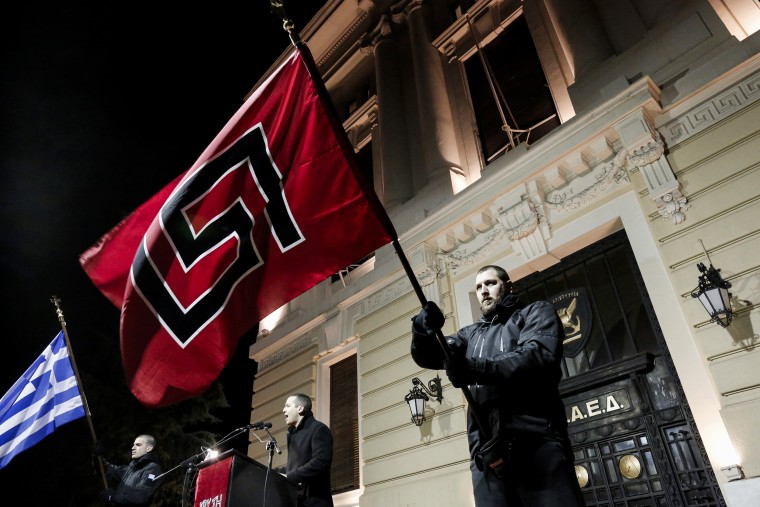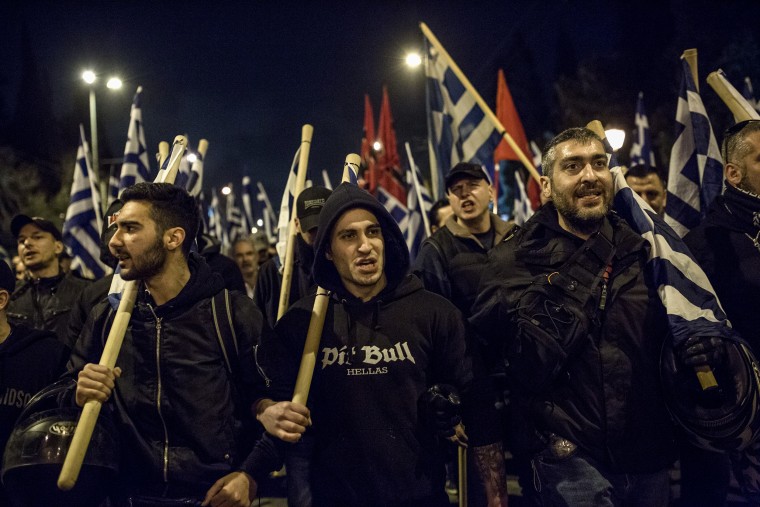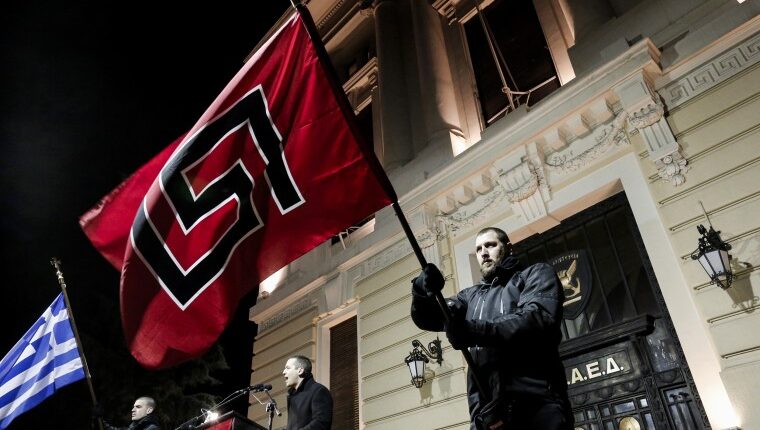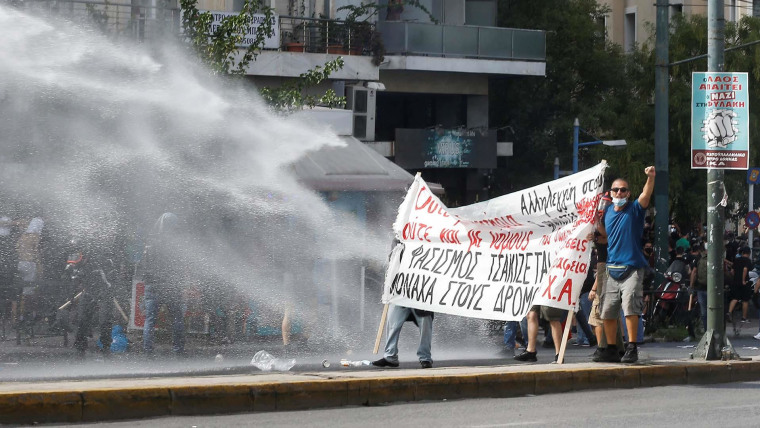Far-right parties won almost 13% of the national vote in Greece’s countrywide elections over the weekend, in what experts warn could be the most significant in a recent string of victories for similar groups across Europe.
While the ruling center-right New Democracy Party won a landslide victory, with 40.5% of the vote, its triumph was overshadowed by the success of the Spartans, a recently formed far-right nativist group that gained 12 seats in Greece’s 300-seat Parliament.
Widely seen as a direct descendant of the outlawed neo-Nazi Golden Dawn group, which was declared a criminal organization in 2020, the Spartans were enthusiastically endorsed by Ilias Kasidiaris, a former Golden Dawn lawmaker.
Kasidiaris tweeted his support and congratulations from prison, where he is serving a 13-year sentence for his part in Golden Dawn’s criminality, which included acts of violence against migrants and political rivals.

Marta Lorimer, an expert in far-right politics in Europe at the London School of Economics, said that the success of the radical right in Greece and elsewhere has had a profound political effect: it has made traditionally moderate center-right parties more extreme.
“The main challenge is that you have a center right that’s copying the messaging of the far right. The prime minister can now say that the election results show people want more far-right policies,” she said.
“It’s true that these parties are doing better than before, but for me it’s more the case that the people in the middle might see this [far-right extremism] as helpful. To me that’s more worrying.”
On the question of a European wave of far-right tendencies, Georgios Samaras, an expert in Greek politics and political economy at Kings College, London, pointed out that some of Greece’s radical parties would be banned in Germany, where the use of extremist symbols, including the swastika, is outlawed. And very few movements, of any persuasion, would survive their biggest party being declared a criminal enterprise, he said.
“That is why Greece stands out: neo-Nazis are re-emerging into politics after the leaders were convicted [for being part of a] right-wing criminal organization,” Samaras said.
“And yes, there is a right-wing turn in Europe, but Greece is something more extreme than Finland, for example, or Spain, or Germany with AfD. We are seeing something new emerging in European politics,” he added.
Greece may be more extreme, but it is not alone in lurching right.
The Brothers of Italy, which traces its roots to the supporters of dictator Benito Mussolini, last year became the first far-right party to win an Italian election since World War I.
Earlier this month, the anti-immigration Finns Party entered a four-party coalition to rule in Finland, and in September 2022 neighboring Sweden saw the hard-right populist Sweden Democrats win more than 20% of the vote to become the country’s second-biggest party.
The far-right Vox Party in Spain is expected to do well in national elections next month, hovering around 14% in opinion polls. In 2019, the party won 15% of the vote and 52 lawmakers.
The far-right Alternative for Germany (AfD) can count on the support of about 20% of the German public, according to opinion polls; on Sunday, it won an important regional election in the eastern state of Thuringia.
Last year Marine Le Pen, the then-leader of the National Assembly, came closer than ever to becoming France’s first far-right president.
But in Greece, the 241,000 people who voted for Spartans “are actually committed neo-Nazi supporters,” according to Samaras, the expert from Kings College.

“People know what Golden Dawn is,” he said. “Golden Dawn was convicted as a criminal organization, it orchestrated the murders of several people and has participated in several anti-migration activities over the past 10 years.”
At the height of its popularity in 2015, Golden Dawn won 380,000 votes, 7% of the total.
In Sunday’s election two other radical right-wing parties, Greek Solution and the Democratic Patriotic Movement, known for the Greek acronym NIKI, won 4.4% and 3.7% of the vote, respectively. In total, far-right groups won 664,000 votes in a country that covers a large area but has a population of just 10 million.
The election this weekend came days after one of the worst sea disasters in modern Greek history killed more than 300 people, mostly migrants from Africa and the Middle East. Greek authorities have been criticized for not acting to rescue the migrants, amid a fevered national debate about the responsibilities of the state toward asylum-seekers.
Source: | This article originally belongs to Nbcnews.com











